Our projects
Treevive works with forest conservation, restoration, sustainable managed forests and agroforestry projects in Latin America, Sub Sahara Africa and South East Asia. Our projects improve ecosystems, protect biodiversity, benefit people, and sequesters greenhouse gas emissions. Learn more about our projects:
Nicaragua – MLR Forestal
 Learn more...
Learn more...
Nicaragua – MLR Forestal
Forest landscape restoration through innovative agroforestry in Nicaragua. We work together with MLR Forestry, to turn the tide by focusing on landscape restoration through agroforestry by planting mixed teak and cacao on degraded lands. From 2020 onwards, the project manages assigned protection areas for gradual rehabilitation into natural lands, specifically in those areas that have suffered high levels of degradation.
Papua New Guinea – Forcert
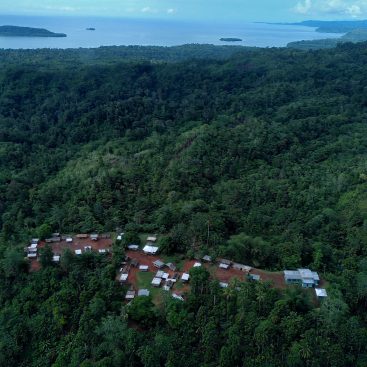 Learn more...
Learn more...
Papua New Guinea – Forcert
Nestled in Papua New Guinea’s East New Britain Province, the Tavolo REDD+ Project is developed by the NGO FORCERT in close collaboration with the Tavolo community. The project coveres 21,164 ha of ancestral land and aims to empower the local community to tackle deforestation and land conversion challenges in the region.
Peru – Pachamama Raymi
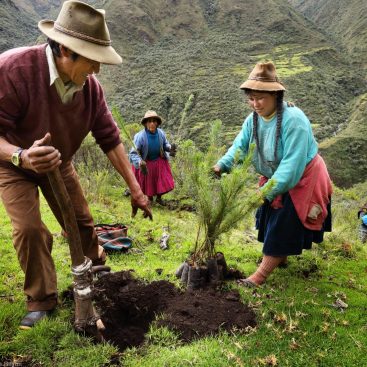 Learn more...
Learn more...
Peru – Pachamama Raymi
Pachamama Raymi, a non-profit organization headquartered in Cusco, is dedicated to breaking the cycle of environmental degradation and rural poverty. The organization’s mission revolves around the improvement of living conditions and the sustainable management of natural resources for rural communities in the Peruvian Andes. The initiative is focused on implementing reforestation practices alongside rural communities in extreme poverty.
Congo – Noé
 Learn more...
Learn more...
Congo – Noé
This National Park is one of the most biodiverse parks in Congo with dense forests, wetlands and savannahs giving home to populations of endangered forest elephants, great apes and turtles. The park is under increasing pressure of illegal mining, logging and poaching activities and additional revenues are needed for protection.
Eco-Benin
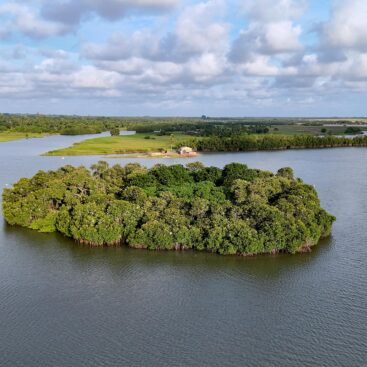 Learn more...
Learn more...
Eco-Benin
Located in southwestern Benin, the EcoBenin Mangrove Carbon Project is developed by the NGO EcoBenin, leveraging over 20 years of experience in conservation and sustainable development. The project spans 31,152 hectares, including the Bouche du Roy reserve and parts of the Mono Transboundary Biosphere Reserve, a Ramsar-protected area. It aims to restore 2,500 hectares of mangroves using active planting and natural regeneration techniques.
Peru – Amazon Restoration Company
 Learn more...
Learn more...
Peru – Amazon Restoration Company
Transforming degraded lands into an ecological buffer zone for an Amazonian national park and a new forestry business for value-added timber products. Revenues will be generated by producing and manufacturing sustainable and traceable (semi) timber products based on native species, for local and international markets. It will be a nucleus site, engaging existing smallholders and indigenous communities in an outgrower program to uplift the local socio-economic conditions.
Uganda – Green Environ Forestry
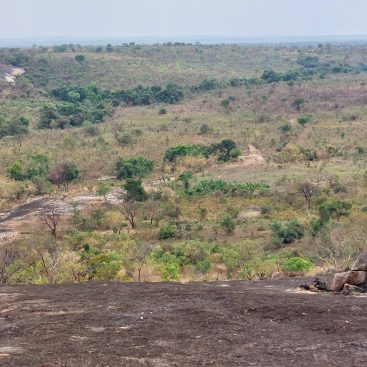 Learn more...
Learn more...
Uganda – Green Environ Forestry
Green Environ Forestry (GEF) and its partners are dedicated to revitalizing Uganda’s forest landscape. Through a blend of natural forest restoration and commercial plantation, GEF focuses on sustainable land use. In collaboration with the Uganda National Forest Authority, GEF operates in a number of Central Forest Reserves.
Ghana – Bosomoa
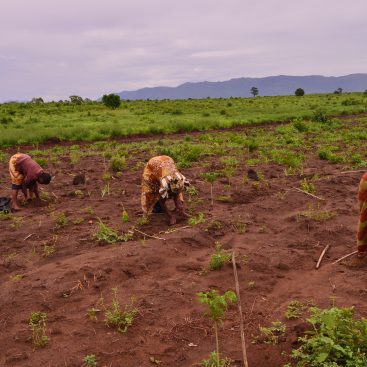 Learn more...
Learn more...
Ghana – Bosomoa
This project aims to restore 25,000 hectares in two degraded forest reserves in Ghana’s Bono region through commercial plantations, Assisted Natural Regeneration, and planting indigenous trees. The goal is to improve livelihoods, land productivity, and biodiversity protection by engaging all stakeholders. The project seeks FSC certification for sustainable forest management, creating a second income stream from timber sales.
Mozambique – Levasflor
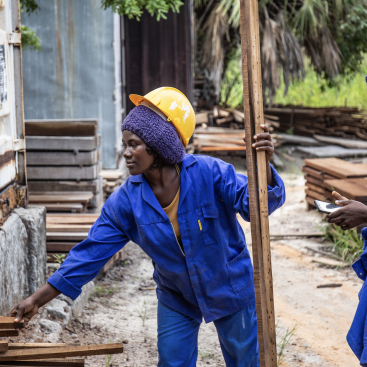 Learn more...
Learn more...
Mozambique – Levasflor
Mozambique’s Miombo forests bear witness to a pioneering initiative known as the Miombo 500, organised by LevasFlor. Managing and operating 46,000 hectares of native Miombo forests, LevasFlor is a beacon of sustainable forest management in Mozambique. The primary goal is to extend this effort to cover 500,000 ha of Miombo forests to counteract the disconcerting pace of deforestation.
Colombia – Corpocampo
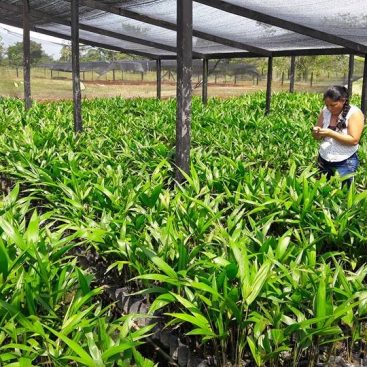 Learn more...
Learn more...
Colombia – Corpocampo
In the heart of the Colombian Amazon lies this remarkable project led by Corpocampo. Corpocampo is a not-for-profit organisation with a focus on the sustainable production of Amazonian non-timber forest products through an outgrower scheme. The central objective is to improve the well-being of local communities while fostering the responsible management of natural resources.

